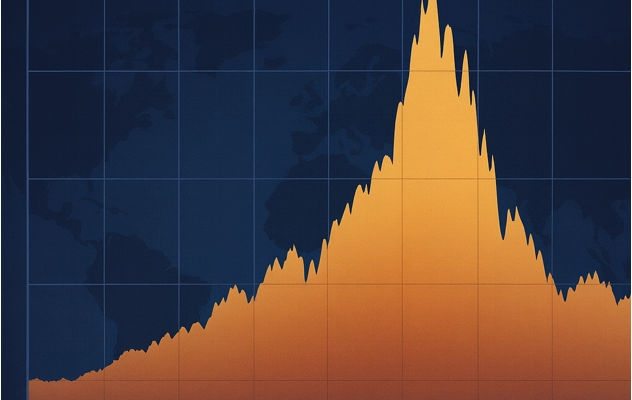From dot-com bubble to the AI bubble

In the late 90s, the internet felt like magic. Everyone sensed a shift was coming, but almost nobody understood exactly what we were building. And somehow… that was enough to send the market into euphoria.
Any company that added "com" to its name instantly became investable. A business model? Revenue? Cash flow?
Not important that the "new economy" would fix everything.
The Nasdaq climbed nearly fivefold in five years (1995-2000). Investors believed the internet was a goldmine and that the growth curve would continue to rise indefinitely. It didn’t. By 2002, the index had fallen by roughly 75–78%. Hundreds of companies vanished. Only the ones that turned technology into real value survived. This is known as the Dot-com bubble.
Fast-forward to today

We’re here again. A moment where the technology feels like magic. Only this time, the buzzword changed: from '.com' to 'AI'.
Startups raise billions on ideas that barely exist outside of pitch decks. GPUs turn into a global commodity. Every product adds “AI inside”, even if it’s just a thin wrapper around a model.
Companies want to implement AI just in case.
If you think about it, it looks suspiciously like 1999.
The parallels between .com and AI bubbles

1. The magic label
Then: “.com” Now: “AI.”
Both work as cheat codes for attracting capital.
2. Valuations growing faster than understanding
“Monetization will come later” sounds strangely familiar.
3. Fear of Missing Out as the primary investment strategy
“If we don’t get in now, we’ll miss the wave.”
The differences between .com and AI bubbles

But this cycle has something that the dot-com never had.
1. AI already delivers real value
Early internet companies had traffic. AI companies save time, reduce costs, automate workflows, and generate revenue.
2. Big Tech actually earns money on AI
AWS, Microsoft, Google, they don’t dream of value. They bill it monthly.
3. The tech actually works
In 1999, the internet was mainly potential. AI is already in production across various industries, including finance, healthcare, engineering, support, and operations.
Still, bubbles aren’t caused by technology. Expectations around it cause them.
So is this a bubble?

The honest answer: yes and no.
AI as a technology is not going anywhere. It’s too useful. Too integrated. Too efficient to disappear. But some companies, valuations, and promises? Those will not survive a market correction.
Companies that do not bring real value, such as those offering "AI for X-job," might default. Their functionality is most likely to be replaced by major vendors such as ChatGPT, Gemini, or others. However, other startups that provide unique value and potentially have a massive user base might grow and become the next unicorns.
